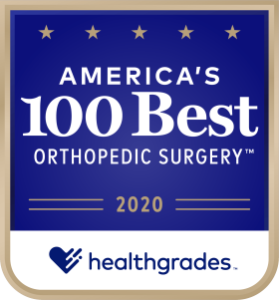 You’re in pain and you’re looking for a doctor to help you. You search doctors in your area, but you’re confused. You see listings for both orthopedic doctors and orthopaedic doctors.
You’re in pain and you’re looking for a doctor to help you. You search doctors in your area, but you’re confused. You see listings for both orthopedic doctors and orthopaedic doctors.
What is the difference between orthopedic and orthopaedic? Which one is better to treat your problems? And how can they help?
Today we’re going to cover the history of orthopedics, what the difference is between orthopedic and orthopaedic, who orthopedic surgeons are, what conditions they treat, and the methods they might use.
The History of Orthopedics
Orthopedics has a long history going back to primitive times. Evidence of orthopedic principles was found in ancient Egypt where they described ways of recognizing and treating orthopedic conditions.
The Greeks and Romans greatly improved our knowledge of anatomy and surgical technique.
Advancement was rapid during the Renaissance period which leads to improved descriptions of injuries, further development of surgical techniques, and the creation of orthopedic hospitals.
The actual term orthopedie was coined in the 1700s to describe the practice of correcting and preventing deformities in children.
In modern times, orthopedics is a rapidly growing field with exciting new research and increasingly advanced surgical techniques.
 So What Is the Difference Between Orthopedic and Orthopaedic?
So What Is the Difference Between Orthopedic and Orthopaedic?
There actually is no difference in practice between doctors who choose the term orthopedics and those who choose the term orthopaedics. It might give some clue about where you are located though.
Overall “orthopedic” is the preferred spelling in the United States while “orthopaedic” is the preferred spelling for British English.
That’s not a definite divide though. Some American professional societies, such as the American Academy of Orthopaedic Surgeons chose to use the “ae” spelling.
So it’s really just a matter of preference.
Who Are Orthopedic Surgeons?
Orthopedic surgeons are medical doctors who have completed around 14 years of study which includes medical school, a residency in orthopedics, and usually a fellowship in a specific area of orthopedics.
These are doctors who have chosen to devote their careers to preventing, diagnosing, and treating disorders of the bones, joints, ligaments, tendons, and muscles.
To maintain their board certification, orthopedic surgeons must attend frequent continuing education to keep their skills up to date and learn about the latest developments. They also complete recertification every 10 years through written exams.
What Conditions Do Orthopedic Doctors Treat?
Orthopedic doctors treat a wide variety of problems. They use both surgical and non-surgical treatments to help you feel better and return to your regular activities.
Some conditions that you might see an orthopedic doctor for include:
- Broken bones
- Carpal tunnel syndrome
- Pain due to an injury
- Arthritis pain
- Scoliosis
- Herniated discs
- Pinched nerves
- Sports injuries
- Neck pain
- Sciatica
- Joint pain or weakness
 What Treatments Do Orthopedic Surgeons Use?
What Treatments Do Orthopedic Surgeons Use?
Orthopedic surgeons perform more than just surgery. They have trained in a variety of surgical and non-surgical options to help their patients.
Splinting
Your doctor may want to prevent additional strain on an injured area to help it heal. They may use immobilizing braces or casts to help with this.
Exercises
Specific exercises and stretches can help maintain or improve your strength, range of motion, and flexibility. This can help you heal and prevent injuries.
Lifestyle Changes
Changes involving modifying your diet, physical activities, and the way that you exercise can help prevent injuries or re-aggravating previous injuries or conditions.
Medications
An orthopedic doctor may prescribe medications to help with inflammation and pain due to a musculoskeletal condition. These can include non-steroidal anti-inflammatory drugs (NSAIDs) like ibuprofen, corticosteroids, or muscle relaxing medications for spasms.
Injections
Orthopedic surgeons can inject a variety of medications into the spaces between your bones to help decrease pain and inflammation, provide cushioning of weight-bearing joints and encourage healing. These can include steroids, hyaluronic acid, or platelet-rich protein.
Surgery
If your condition doesn’t improve with more conservative treatments, surgery might be required.
Some common orthopedic surgical operations include:
- Joint replacements
- Internal fixation with pins, plates, or screws
- Fusion surgery to connect two bones together
- Osteotomy (cutting and repositioning of bone)
- Soft tissue repair of damaged muscles, ligaments, or tendons.
- Surgery to take the pressure off of nerves
In Conclusion
In summary, there’s no real difference between orthopedic and orthopaedic.
Orthopedic is the preferred American spelling and orthopaedic is the preferred British spelling, but both are correct. Some professional associations such as the American Association of Orthopaedic Surgeons choose to use the British spelling.
Either way, when you see a board-certified orthopedic surgeon you can be sure that your joint or bone concerns will be treated by an experienced and well-qualified doctor who will help you explore your best options among a large variety of treatments.




